12 Tips on How to Overcome Comfort Eating with Grace
Struggling with emotional eating? Learn how to overcome comfort eating with effective tips to break free from shame and guilt and live in the freedom God promises.
Heads up! This post may contain affiliate links, which means I get a small commission if you make a purchase — at no extra cost to you. I only recommend products I love and trust! Read my full disclosure here.
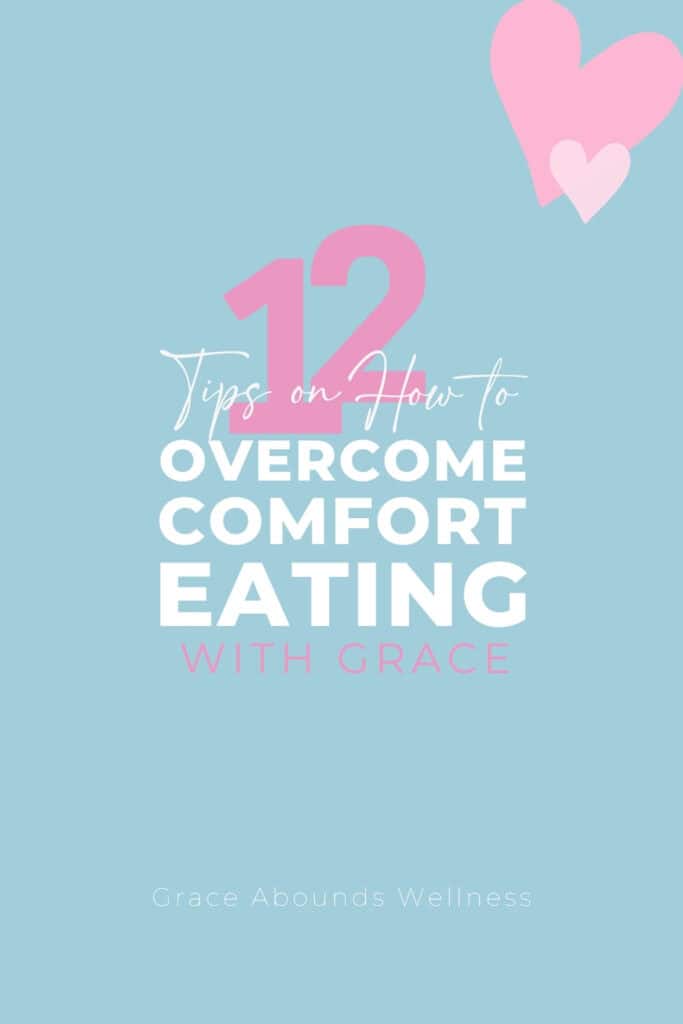
How many times have you asked yourself, “How can I stop comfort eating?”
(Too many to count? — I can relate.)
Well, my beautiful friend, after this post, you won’t have to ask yourself that question anymore! Because you’ll walk away with the tools to overcome comfort eating. Say goodbye to shame and guilt, and finally live in the peaceful freedom God intended for you.
So, how do you know if you’re an emotional eater?
Take this 60-second emotional eating questionnaire to find out…
Emotional Eating Questionnaire
Download this FREE quiz. Then take the quiz to find out if you are an emotional eater!
Ok, ready to get started?
Great!
Comfort Eating Definition
Let’s start off with the basics…
The medical term for comfort eating is emotional eating.
Emotional eating is overeating as a coping mechanism for dealing with negative or difficult emotions, or even to boost a good mood during celebrations.
You’ll notice that I use emotional eating, comfort eating, stress eating, or emotional overeating interchangeably — it’s because they all mean the same thing 😊
What is a Comfort Eating Disorder?
An emotional eating disorder involves using food to cope with negative emotions or unmet emotional needs. People with this disorder might feel out of control around food and experience guilt or shame after eating.
There’s a biological connection between emotional eating and stress. When you start feeling alarmed or upset, your body produces a hormone called cortisol. Cortisol makes us crave sugary, fatty, or salty foods to give us a quick comfort fix.
Listen, God wants you to enjoy yummy foods — but He also wants to be your go-to — your Master — not for food to master you. Hopefully this perspective helps you shift focus from using food as a coping mechanism to relying on God’s strength instead.
The burden of emotional eating can be very overwhelming…
But remember, my beautiful friend, God doesn’t want you to carry this burden alone.
Matthew 11:28 says… Come to me, all you who are weary and burdened, and I will give you rest.
Instead of turning to food, turn to God in prayer and ask Him for the strength to overcome these challenges. His grace is sufficient for every weakness — including comfort eating.
It’s super important that you learn how to overcome comfort eating because if you don’t address it — it can deeply impact every aspect of your life.
To the point where it keeps you from living life to the fullest and fulfilling the wonderful potential God has planned for you…
- Emotional eating can lead to unhealthy weight gain and other health problems over time.
- Overeating can harm your overall wellness and make it hard to meet your health and wellness goals.
- Emotional binge eating can overwhelm and stress your body.
By dealing with your emotions in a healthy way, you can avoid comfort eating and the shame, guilt, and negative self-talk that comes with it.
Discover WHY you Self-Sabotage with Emotional Eating
Download your free 28-Day Food to Freedom Journal to help you get to the root of WHY you turn to food for comfort.
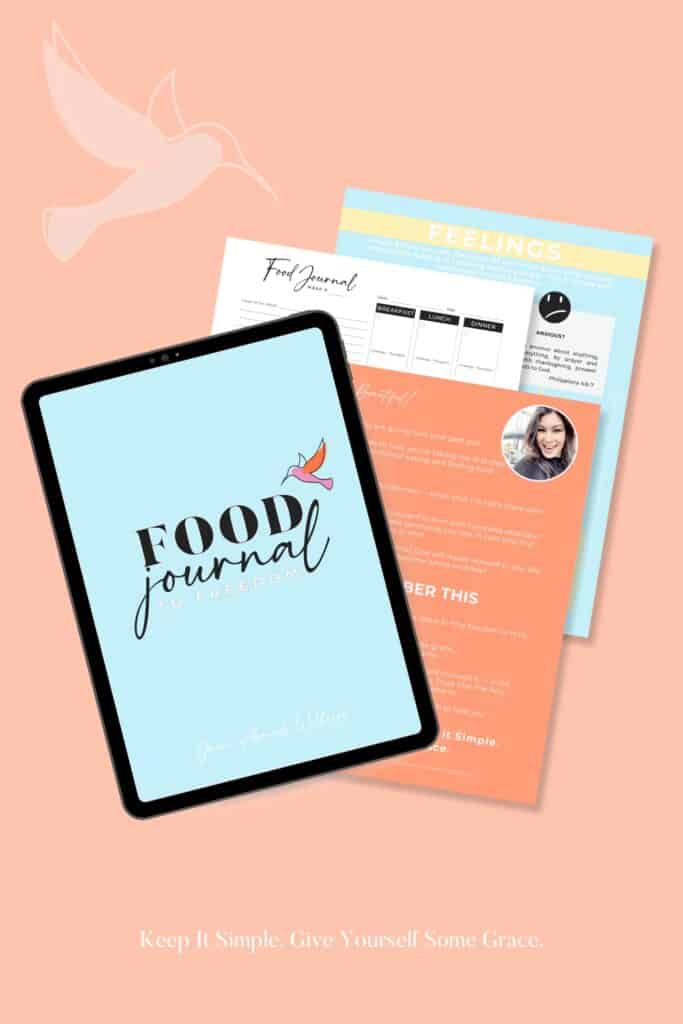
Understanding the Emotional Eating Cycle
The cycle of emotional eating is when you use food to handle uncomfortable emotions — giving you temporary relief — but then feel guilty.
Once you fully grasp the comfort eating cycle, you’ll be better prepared to find healthier ways to handle stress and overcome comfort eating.
Here’s what the cycle looks like…
- Emotional Trigger: The cycle starts when emotions like a stressful situation, chronic stress, anxiety, anger, sadness, boredom, the hassles of daily life, or even happiness cause you to seek comfort in food — not because you’re hungry — but for emotional comfort. Learn all about emotional eating triggers and the difference between physical hunger and emotional hunger here.
- Craving and Food Intake: When those tough emotions hit, you’ll start craving a sweet treat or some fatty foods to soothe the feelings. Whether it’s a pint of ice cream or a bag of chips for some salty satisfaction, this step involves giving in to those cravings as a way to calm down.
- Temporary Relief: Eating can bring you a brief moment of pleasure or even a sense of numbness. It gives you a quick escape from whatever’s weighing on you. But this relief is only temporary — it distracts you from your negative emotions without really dealing with what’s causing them in the first place.
- Guilt and Shame: After giving in to cravings or deviating from your health goals, feelings of guilt or shame usually creep in. It’s that familiar wave of guilt, where you start questioning why you gave in again. Those feelings of guilt can make you feel like you’ve let yourself down. And that feeling can be tough to shake off.
- Rinse and Repeat: You reach for food when stress hits, but afterward, guilt and shame set in, leaving you feeling even worse. Then, to soothe that guilt, you turn to food again, trapping yourself in a tough cycle.
So, how to stop turning to food for comfort, you ask?
💖 Explore Related Posts 💖
- Emotional Eating: Tips on How to Identify Your Triggers
- 5 Ways to Deepen Your Relationship with God
- How To Overcome Your Unhealthy Relationship With Food
12 Tips on How to Overcome Comfort Eating
We’ve all been there — you had a stressful day at work, your kids are driving you crazy, or your stress levels are off the charts “for no good reason…”
And what happens next?
Your food cravings begin and you reach for your comfort food of choice…
But I have good news — with Christ, all things are possible!
I can do all things through Christ who strengthens me.
Philippians 4:13
Here are different ways you can overcome comfort eating…
- Identify Your Triggers: Keeping a food diary and emotion journal is a great way to detect patterns in your emotional eating habits. Recognizing what triggers your emotional eating is the first step toward gaining control!
- Have a Coping Plan: Once you understand your triggers, find healthier ways to deal with them that don’t involve food. Customize these strategies to serve your personal challenges.
- Talk to God: Prayer is your most powerful tool. It shifts your focus from food to Jehova Jireh — your sustenance. Prayer connects you to the Holy Spirit’s unmatchable comforting presence and empowers you with hope.
- Read His Word: Meditating on God’s Word brings peace and strength when you’re feeling emotionally weak or overwhelmed.
- Seek Support: Don’t isolate yourself. Talk to loved ones. Sometimes, sharing your feelings with a friend or family member can help relieve stress. Consider talking to a gospel-centered cognitive behavioral therapist.
- Exercise Regularly: Regular exercise is an excellent stress reliever. It can help regulate your mood and reduce the urge to engage in emotional eating.
- Nourish Your Body Wisely: Choose foods that truly nourish and benefit your body. Avoid mindless eating and using food as a sole source of comfort.
- Avoid Stimulants Before Bed: Rest is crucial for emotional balance! I suggest you limit caffeine late in the day to make sure it doesn’t affect your sleep.
- Simplify Your Tasks: To prevent overwhelming stress, trim your to-do list to what’s manageable. Make sure to include time for rest and plan your day efficiently.
- Practice Mindful Breathing: Incorporate short sessions of deep breathing or Christian meditation into your daily routine to align your mind with God and reduce stress.
- Serve Others: When your emotions are unmanageable, one of the most powerful things you can do is to serve someone else. It shifts the focus away from yourself and aligns you with God’s command to love others.
- Focus on God: When your focus is on God, food is no longer your idol or a source of worship — you put it in its proper place — keeping God at the center of your life. Remember, God knows how your body functions best. The truth is when you eat to glorify God, your whole perspective changes. You stop using food as a solution to problems that only God can resolve. And this, my friend, is what will ultimately transform your approach to eating and life challenges.
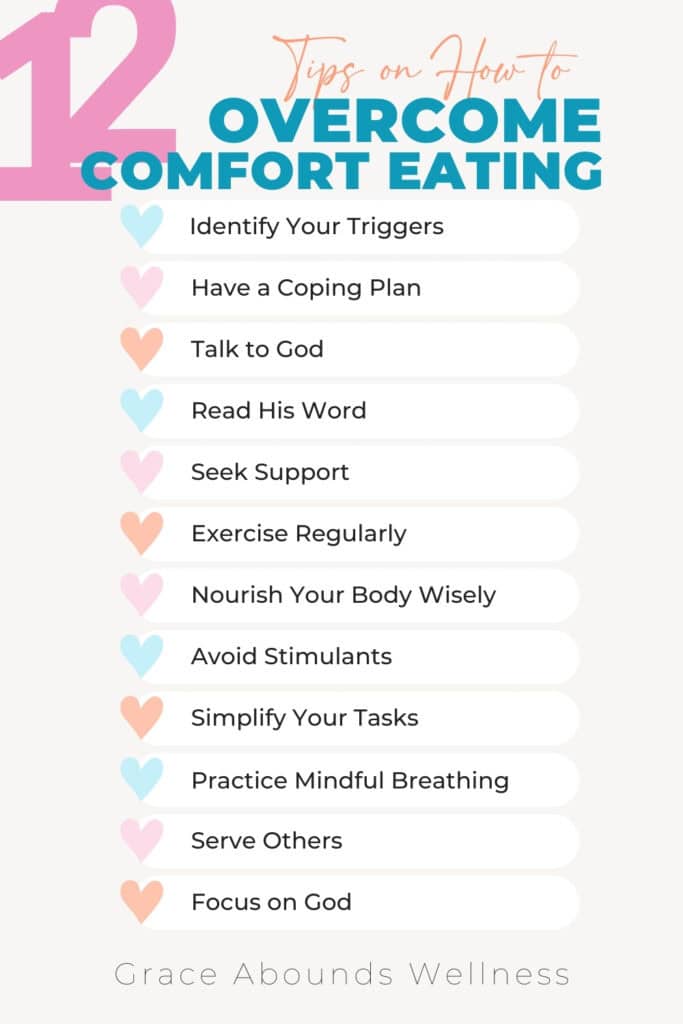
So whether you eat or drink or whatever you do, do it all for the glory of God.
1 Corinthians 10:31
What does God say about emotional eating?
Plus, Bible verses for emotional eating…
While the Bible doesn’t specifically address emotional eating, several verses provide insight into how God views this struggle. These scriptures can provide comfort and guidance when you’re struggling with it.
He satisfies your desires with good things, so that your youth is renewed like the eagle’s.
Psalm 103:5
This verse suggests that God is concerned with our overall well-being, including our emotional and physical health.
But he said to me, ‘My grace is sufficient for you, for my power is made perfect in weakness.’ Therefore I will boast all the more gladly about my weaknesses, so that Christ’s power may rest on me.
2 Corinthians 12:9-10
I don’t know about you, but this verse is EVERYTHING!!! GRACE. POWER. REST.
When you admit your weaknesses to yourself and others, you might feel exposed and scared. But thankfully, God doesn’t see weakness the same way you do.
To Him, weakness is just another opportunity to…
- extend grace
- show His power in your life
- and give you rest…
One of the most frequent things I used to tell myself during episodes of emotional eating was — “It’s not that big of a deal. I’m not harming anyone.”
And that has some truth to it because…
- You’re 100% free and encouraged to eat!
- Jesus enjoyed meals in celebration and in great company.
- God made everything for your enjoyment.
But, when you abuse the “thing,” — it has probably mastered you. So, just because you can, doesn’t mean you should.
I have the right to do anything,” you say—but not everything is beneficial. “I have the right to do anything”—but I will not be mastered by anything.
1 Corinthians 10:23
The Bible often uses food as a metaphor for spiritual nourishment — so it’s essential to choose foods that genuinely nourish you.
As you pray for the Holy Spirit to reveal the triggers that lead you to use food for comfort — and apply the tips on how to overcome comfort eating from this post — you’ll be equipped with God’s strength to break free from emotional eating for good!
With these strategies — you can change the narrative. Go to your Creator, ask Him to uncover any anxious thoughts, and let Him redefine your perspective of beauty based on your TRUE identity as His beloved daughter.
Don’t you realize that your body is the temple of the Holy Spirit, who lives in you and was given to you by God? You do not belong to yourself, for God bought you with a high price. So you must honor God with your body.
1 Corinthians 6:19-20
Your body is a unique masterpiece. If only you would believe — truly believe — how valuable you and your body are…
It is said that value equals the price you pay for something. Well, my beautiful friend…
Jesus paid the highest price ever!
Super Helpful Resources
30-Day Digital Self-Love Journal
Next Steps…
God’s grace reaches into every area of your life — including emotional eating. It’s not easy to overcome an emotional eating habit. But believe and have faith that He will provide the emotional strength and grace to help you overcome it.
Remember, God created food to…
- nourish your body
- give you energy
- and be enjoyed in fellowship with others
…not as a crutch for emotional comfort. If you find yourself frequently turning to food when you’re not hungry, it’s time to take action.
Here’s what you can do next:
- Download Your Quiz to identify your emotional eating triggers.
- Get Your Free Journal to Freedom to start developing a plan to break free from emotional eating.
Take these steps today to start your journey towards living in the freedom God has planned for you.
I pray this post on how to overcome comfort eating with a Christian perspective was helpful!
🤗 Sharing is caring!
If this post spoke to your heart, would you share it with a solopreneur friend who might also be feeling stuck or second-guessing herself?
Text her the link. (Seriously — don’t overthink it.)
Because sharing the hope is what it’s all about.
And hey — I’d love to hear from you!
Drop a comment below and let me know if this helped or what you’d love to see me unpack next. I’m all ears, friend.

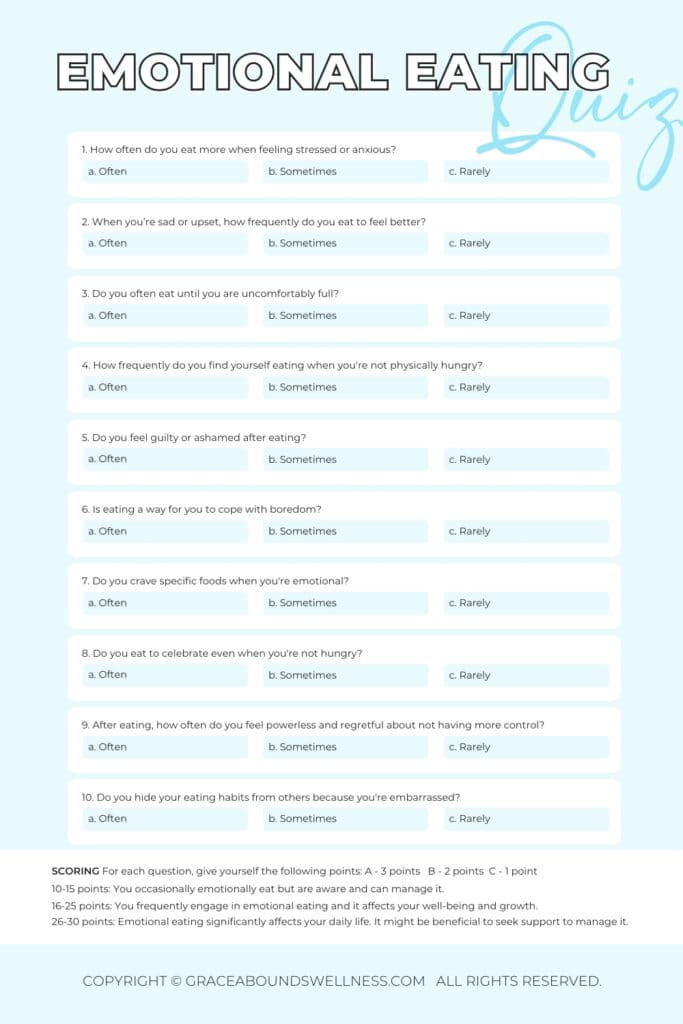

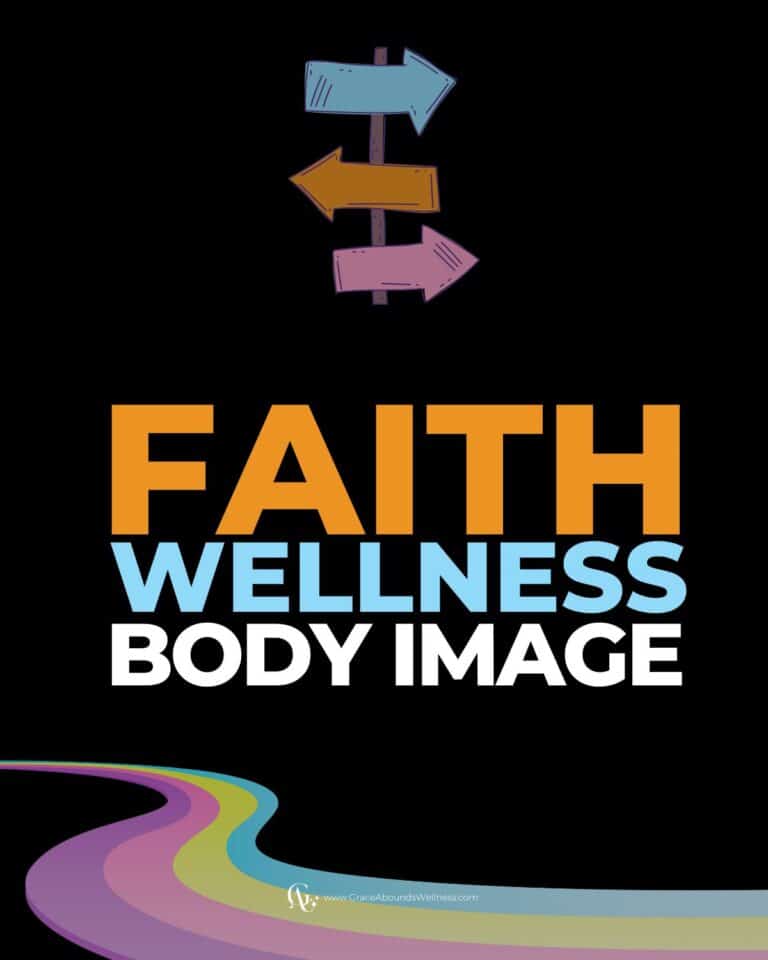
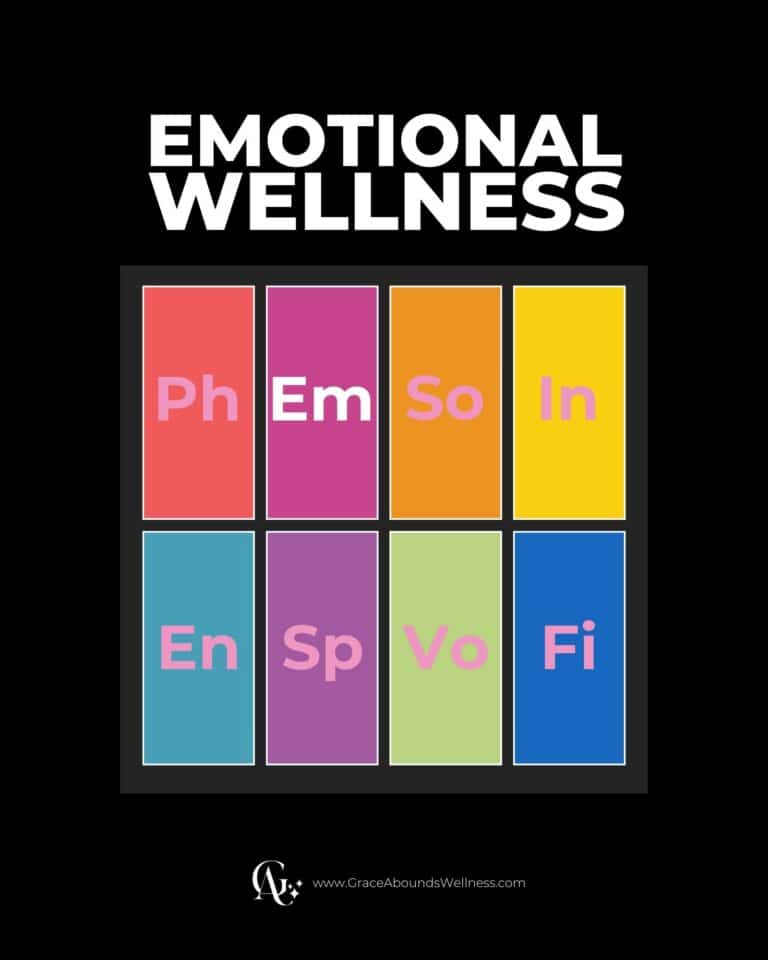
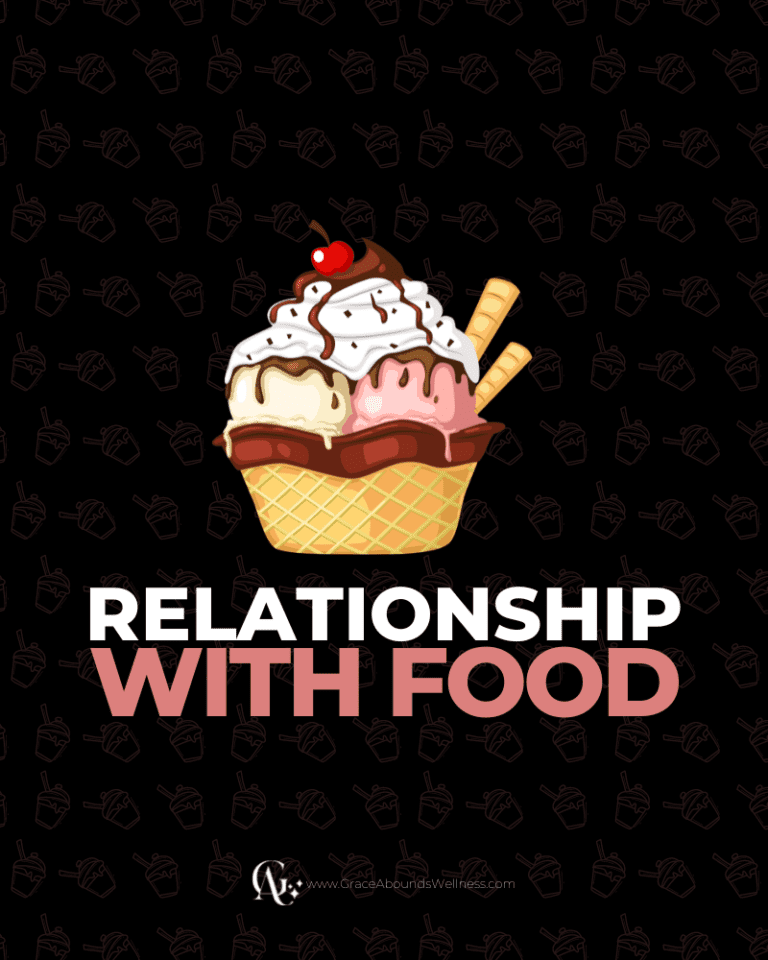
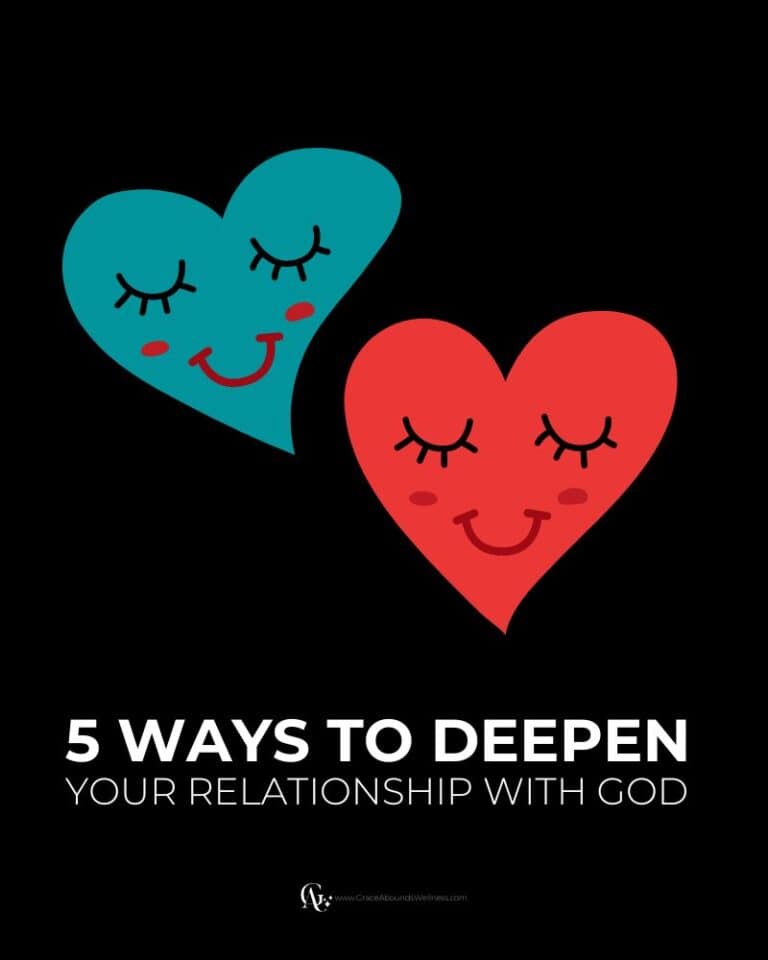

Join the List
Stay up to date & receive the latest posts in your inbox.